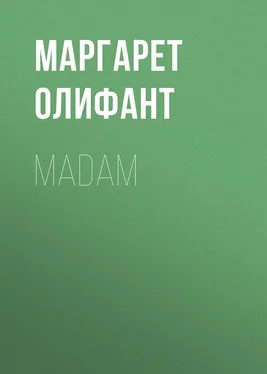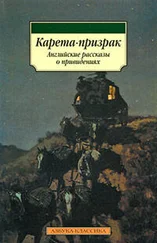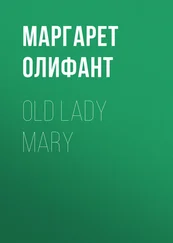Маргарет Олифант - Madam
Здесь есть возможность читать онлайн «Маргарет Олифант - Madam» — ознакомительный отрывок электронной книги совершенно бесплатно, а после прочтения отрывка купить полную версию. В некоторых случаях можно слушать аудио, скачать через торрент в формате fb2 и присутствует краткое содержание. Жанр: foreign_prose, literature_19, foreign_antique, на английском языке. Описание произведения, (предисловие) а так же отзывы посетителей доступны на портале библиотеки ЛибКат.
- Название:Madam
- Автор:
- Жанр:
- Год:неизвестен
- ISBN:нет данных
- Рейтинг книги:5 / 5. Голосов: 1
-
Избранное:Добавить в избранное
- Отзывы:
-
Ваша оценка:
- 100
- 1
- 2
- 3
- 4
- 5
Madam: краткое содержание, описание и аннотация
Предлагаем к чтению аннотацию, описание, краткое содержание или предисловие (зависит от того, что написал сам автор книги «Madam»). Если вы не нашли необходимую информацию о книге — напишите в комментариях, мы постараемся отыскать её.
Madam — читать онлайн ознакомительный отрывок
Ниже представлен текст книги, разбитый по страницам. Система сохранения места последней прочитанной страницы, позволяет с удобством читать онлайн бесплатно книгу «Madam», без необходимости каждый раз заново искать на чём Вы остановились. Поставьте закладку, и сможете в любой момент перейти на страницу, на которой закончили чтение.
Интервал:
Закладка:
The footstep advanced with a certain hesitation. Then an unfamiliar voice said, “I am not Dunmore—but if you will allow me to help you—”
She started and turned round. It was the same stranger whom she had already twice seen on the road. “Oh! pray don’t let me trouble you. Dunmore will be here directly,” she said.
This did not, however, prevent the young man from rendering the necessary assistance. He got into one of the nearer boats, and stretching out from the bow of it, secured the stray pinnace. It was not a dangerous act, nor even one that gave the passer-by much trouble, but Rosalind, partly out of a sense that she had been ungracious, partly, perhaps—who can tell—out of the utter monotony of all around her, thanked him with eagerness. “I am sorry to give you trouble,” she said again.
“It is no trouble, it is a pleasure.” Was he going to be so sensible, so judicious, as to go away after this? He seemed to intend so. He put on his hat after bowing to her, and turned away, but then there seemed to be an after-thought which struck him. He turned back again, took off his hat again, and said: “I beg your pardon, but may I ask for Mr. Trevanion? The village news is so uncertain.”
“My father is still very ill,” said Rosalind, “but it is thought there is now some hope.”
“That is good news indeed,” the stranger said. Certainly he had a most interesting face. It could not be possible that a man with such a countenance was “not a gentleman,” that most damning of all sentences. His face was refined and delicate; his eyes large, liquid, full of meaning, which was increased by the air of weakness which made them larger and brighter than eyes in ordinary circumstances. And certainly it was kind of him to be glad.
“Oh, yes, you told me before you knew my father,” Rosalind said.
“I cannot claim to know Mr. Trevanion; but I do know a member of the family very well, and I have heard of him all my life.”
Rosalind was no more afraid of a young man than of an old woman, and she thought she had been unjust to this stranger, who, after all, notwithstanding his rough dress, had nothing about him to find fault with. She said, “Yes; perhaps my Uncle John? In any case I am much obliged to you, both for helping me and for your interest in papa.”
“May I sometimes ask how he is? The villagers are so vague.”
“Oh, certainly,” said Rosalind; “they have a bulletin at the lodge, or if you care to come so far as Highcourt, you will always have the last report.”
“You are very kind, I will not come to the house. But I know that you often walk in the park. If I may ask you when we—chance to meet?”
This suggestion startled Rosalind. It awoke in her again that vague alarm—not, perhaps, a gentleman. But when she looked at the eyes which were searching hers with so sensitive a perception of every shade of expression, she became confused and did not know what to think. He was so quickly sensible of every change that he saw he had taken a wrong step. He ought to have gone further, and perceived what the wrong step was, but she thought he was puzzled and did not discover this instinctively, as a gentleman would have done. She withdrew a step or two involuntarily. “Oh, no,” she said with gentle dignity, “I do not always walk the same way; but you may be sure of seeing the bulletin at the lodge.” And with this she made him a courtesy and walked away, not hurrying, to show any alarm, but taking a path which was quite out of the way of the public, and where he could not follow. Rosalind felt a little thrill of agitation in her as she went home. Who could he be, and what did he do here, and why did he throw himself in her way? If she had been a girl of a vulgarly romantic imagination, she would no doubt have jumped at the idea of a secret adoration which had brought him to the poor little village for her sake, for the chance of a passing encounter. But Rosalind was not of this turn of imagination, and that undefined doubt which wavered in her mind did a great deal to damp the wings of any such fancy. What he had said was almost equal to asking her to meet him in the park. She blushed all over at the thought—at the curious impossibility of it, the want of knowledge. It did not seem an insult to her, but such an incomprehensible ignorance in him that she was ashamed of it; that he should have been capable of such a mistake. Not a gentleman! Oh, surely he could never, never— And yet the testimony of those fine, refined features—the mouth so delicate and sensitive, the eyes so eloquent—was of such a different kind. And was it Uncle John he knew? But Uncle John had passed him on the road and had not known him. It was very strange altogether. She could not banish the beautiful, pleading eyes out of her mind. How they looked at her! They were almost a child’s eyes in their uncertainty and wistfulness, reading her face to see how far to go. And altogether he had the air of extreme youth, almost as young as herself, which, of course, in a man is boyhood. For what is a man of twenty? ten years, and more, younger and less experienced than a woman of that sober age. There was a sort of yearning of pity in her heart towards him, just tempered by that doubt. Poor boy! how badly he must have been brought up—how sadly ignorant not to know that a gentleman— And then she began to remember Lord Lytton’s novels, some of which she had read. There would have been nothing out of place in them had such a youth so addressed a lady. He was, indeed, not at all unlike a young man in Lord Lytton. He interested her very much, and filled her mind as she went lightly home. Who could he be, and why so anxious about her father’s health? or was that merely a reason for addressing her—a way, perhaps he thought, of securing her acquaintance, making up some sort of private understanding between them. Had not Rosalind heard somewhere that a boy was opt to select a much older woman as the object of his first admiration? Perhaps that might furnish an explanation for it, for he must be very young, not more than a boy.
When she got home her first step into the house was enough to drive every thought of this description out of her mind. She was aware of the change before she could ask—before she saw even a servant of whom to inquire. The hall, all the rooms, were vacant. She could find nobody, until, coming back after an ineffectual search, she met Jane coming away from the sick-room, carrying various things that had been used there. Jane shook her head in answer to Rosalind’s question. “Oh, very bad again—worse than ever. No one can tell what has brought it on. Another attack, worse than any he has had. I think, Miss Rosalind,” Jane said, drawing close with a tremulous shrill whisper, “it was that dreadful woman that had got in again the moment my poor lady’s back was turned.”
“What dreadful woman?”
“Oh, Russell, Miss Rosalind. My poor lady came out of the room for five minutes— I don’t think it was five minutes. She was faint with fatigue; and all at once we heard a cry. Oh, it was not master, it was that woman. There she was, lying at the room door in hysterics, or whatever you call them. And the spasms came on again directly. I pushed her out of my lady’s way; she may be lying there yet, for anything I know. This time he will never get better, Miss Rosalind,” Jane said.
“Oh, do not say so—do not say so,” the girl cried. He had not been a kind father nor a generous master. But such was the awe of it, and the quivering sympathy of human nature, that even the woman wept as Rosalind threw herself upon her shoulder. The house was full of the atmosphere of death.
CHAPTER XV
Russell meant no harm to her master. In the curious confusion which one passionate feeling brings into an undisciplined mind, she had even something that might be called affection for Mr. Trevanion, as the victim of the woman she hated. Something that she called regard for him was the justification in her own mind of her furious antipathy to his wife. And after all her excitement and suspense, to be compelled to witness what seemed to her the triumph of Madam, the quieting down of all suspicions, and her return, as more than ever indispensable, to the bedside of her husband, drove the woman almost to madness. How she lived through the week and executed her various duties, as in ordinary times, she did not know. The children suffered more or less, but not so much as might be supposed. For to Russell’s perverted perception the children were hers more than their mother’s, and she loved them in her way, while she hated Mrs. Trevanion. Indeed, the absorption of Madam in the sick-room left them very much in Russell’s influence, and, on the surface, more evidently attached to her than to the mother of whom they saw so little. If they suffered from the excitement that disturbed her temper, as well as other things, it was in a very modified degree, and they were indulged and caressed by moments, as much as they were hustled and scolded at others. The nursery-maids, indeed, found Russell unbearable, and communicated to each other their intention to complain as soon as Madam could be supposed able to listen to them; if not, to give notice at once. But they did not tell for very much in the house, and the nurse concealed successfully enough from all but them the devouring excitement which was in her. It was the afternoon hour, when nature is at its lowest, and when excitement and suspense are least supportable, that Russell found her next opportunity. She had gone down-stairs, seeking she knew not what—looking for something new—a little relief to the strain of suspense, when she suddenly saw the door of the sick-room open and Mrs. Trevanion come out. She did not stop to ask herself what she was to gain by risking an outbreak of fury from her master, and of blame and reproach from every side, by intruding upon the invalid. The temptation was too strong to be resisted. She opened the door without leaving herself time to think, and went in.
Читать дальшеИнтервал:
Закладка:
Похожие книги на «Madam»
Представляем Вашему вниманию похожие книги на «Madam» списком для выбора. Мы отобрали схожую по названию и смыслу литературу в надежде предоставить читателям больше вариантов отыскать новые, интересные, ещё непрочитанные произведения.
Обсуждение, отзывы о книге «Madam» и просто собственные мнения читателей. Оставьте ваши комментарии, напишите, что Вы думаете о произведении, его смысле или главных героях. Укажите что конкретно понравилось, а что нет, и почему Вы так считаете.












